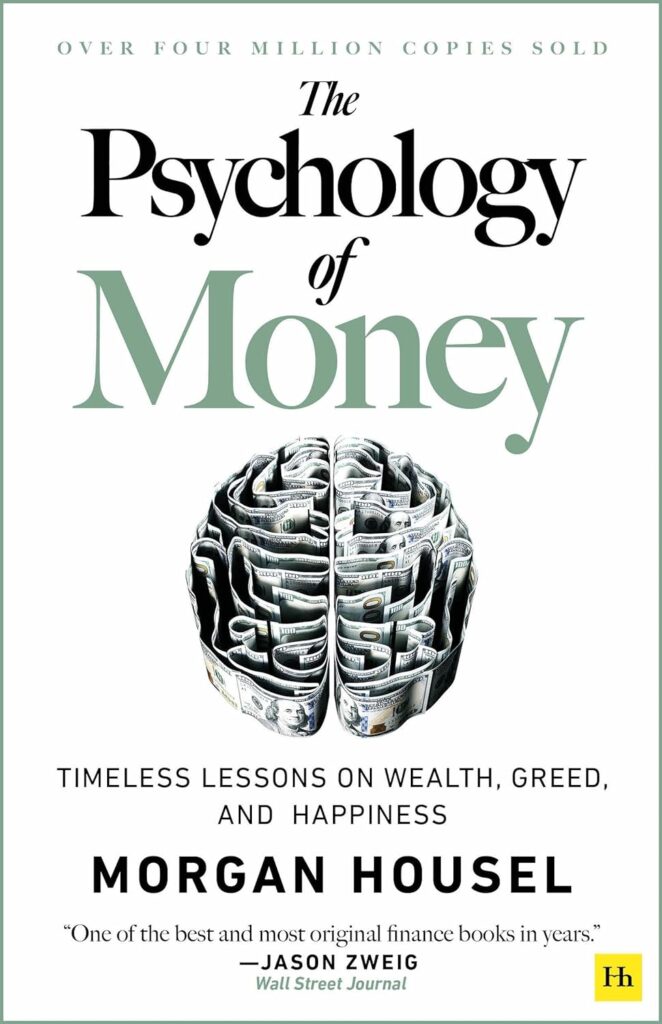
In Morgan Housel’s book “The Psychology of Money” he delves into the fascinating intersection of human behavior, finance, and decision-making. While traditional financial advice often focuses on numbers and formulas, Housel emphasizes that understanding our relationship with money is equally crucial. Let’s explore key insights from the book and how they impact our financial lives.
Money Scripts and Behavior
Our beliefs about money are deeply ingrained and often shaped by childhood experiences. Housel introduces the concept of money scripts, which are our unconscious beliefs about money. These scripts influence our financial behaviors and perspectives. Understanding your money script can lead to better decision-making.
The Power of Simplicity
Financial success isn’t solely about complex strategies or intricate formulas. Housel argues that simplicity matters. Keep it simple when managing your finances. Avoid overcomplicating investments or chasing the latest trends. Focus on timeless principles like saving, investing consistently, and living within your means.
The Role of Emotions
Money decisions aren’t made in a vacuum. Emotions play a significant role. Fear, greed, and overconfidence can lead to irrational choices. Recognize your emotional triggers and strive for a balanced approach. Remember that markets are driven by human behavior, not just data.
The Long-Term View
Investing is a marathon, not a sprint. Housel emphasizes the importance of long-term thinking. Avoid reacting to short-term market fluctuations. Instead, focus on your financial goals and stay disciplined. Compound interest and time in the market are powerful allies.
The Myth of Rationality
Humans aren’t purely rational beings. We’re influenced by biases, social norms, and peer pressure. Housel challenges the idea that financial decisions are purely logical. Acknowledge your biases, seek diverse perspectives, and learn from behavioral economics.
Money and Happiness
While money doesn’t guarantee happiness, it does provide security and freedom. Housel encourages readers to define their own version of financial success. Understand what truly matters to you, whether it’s time with loved ones, meaningful work, or experiences.
“The Psychology of Money” reminds us that financial well-being isn’t just about numbers—it’s about understanding ourselves, our behaviors, and our values. As you navigate your financial journey, consider the psychology behind your decisions. Strive for balance, simplicity, and a long-term perspective. After all, money is a tool that should enhance our lives, not define them.
